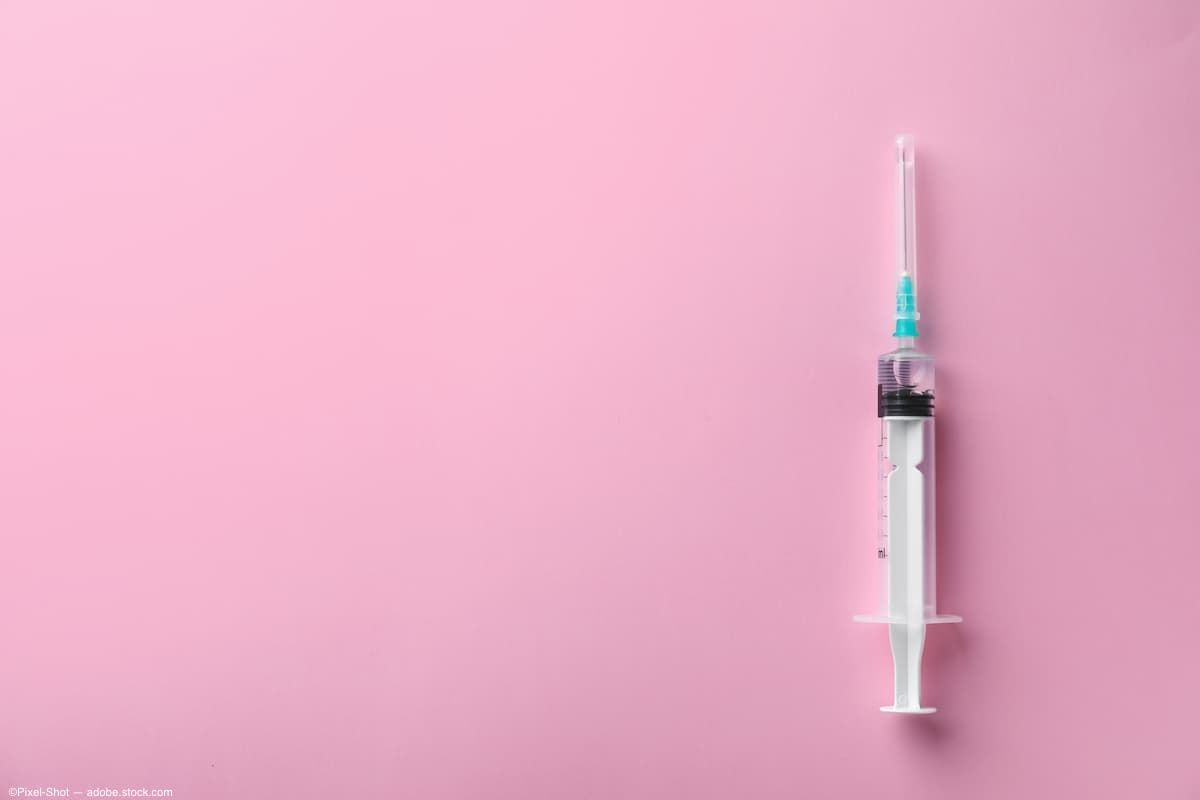Regenexbio announces positive interim data from Phase II Aaviate trial of ABBV-RGX-314 for treatment of wet AMD
According to the company, ABBV-RGX-314 continues to be well tolerated in over 100 patients from three dose levels with no drug-related serious adverse events. The new data was presented at the Hawaiian Eye and Retina meeting in Maui, by John Pitcher, MD, and includes 6-month results from two additional dose level 3 cohorts.
(Image credit: AdobeStock/Pixel-Shot)

Regenxbio Inc announced positive interim data from the Phase II Aaviate trial (NCT04514653)of ABBV-RGX-314 for the treatment of wet age-related macular degeneration (wet AMD) using suprachoroidal delivery.
According to the company,1 investigational ABBV-RGX-314 using suprachoroidal delivery is designed to be a one-time, in-office treatment that has the potential to sustain constant anti-VEGF therapy and stabilize or improve vision long-term for wet AMD patients.
The new data presented at the Hawaiian Eye and Retina meeting in Maui, by John Pitcher, MD, Eye Associates of New Mexico, includes 6-month results from two additional dose level 3 cohorts (Cohorts 5 and 6). ABBV-RGX-314, being developed in collaboration with AbbVie, is also being investigated as a potential one-time gene therapy for the treatment of diabetic retinopathy and other chronic retinal conditions.
“The potential of ABBV-RGX-314 to transform the way chronic retinal conditions are treated has been demonstrated in multiple trials using both subretinal and suprachoroidal delivery, and these latest interim results from the AAVIATE trial continue to support this outlook," Steve Pakola, MD, chief medical officer of Regenxbio, said in the news release.
Pakola noted a one-time, in-office treatment with ABBV-RGX-314 continues to be well tolerated in patients with wet AMD.
“We are pleased that dose level 3 in this trial has shown the highest reduction in treatment burden with zero cases of inflammation observed in patients who received prophylactic short-course topical steroids,” he said. “We are encouraged by this data as part of the global ABBV-RGX-314 program."
Pitcher noted real-world evidence shows that patients with wet AMD are often undertreated due to the unsustainable treatment burden of frequent injections.
“As a result, many wet AMD patients experience significant vision loss over time," Pitcher said in the news release. "I am encouraged by the safety profile of ABBV-RGX-314 using suprachoroidal delivery and the potential of a one-time, in-office injection that can sustain constant anti-VEGF therapy to address a major unmet need for patients."
Data and Safety Summary
Aaviate is a Phase II, multi-center, open-label, randomized, active-controlled, dose-escalation trial that is evaluating the efficacy, safety and tolerability of suprachoroidal delivery of ABBV-RGX-314 in patients with wet AMD.
According to the news release, the primary endpoint of the trial is mean change in vision in patients dosed with ABBV-RGX-314, as measured by best corrected visual acuity (BCVA) at Week 40 from baseline, compared to patients receiving monthly injections of ranibizumab. Other endpoints include mean change in central retinal thickness (CRT) and number of anti-vascular endothelial growth factor (anti-VEGF) intravitreal injections received following administration of ABBV-RGX-314.1
As of November 6, 2023, ABBV-RGX-314 suprachoroidal delivery was well tolerated across 106 patients from 3 dose levels. No drug-related SAEs were reported. All treatment-emergent adverse events (TEAEs) through 6 months in the study eye were mild or moderate and included conjunctival hemorrhage, increased intraocular pressure, episcleritis, and conjunctival hyperemia.
Moreover, the company noted in its news release mild intraocular inflammation was reported at a similar incidence rate in the first and second dose levels, with mild to moderate intraocular inflammation seen at the third dose level in Cohort 4 and 5. All intraocular inflammation resolved with topical corticosteroids. Notably, there were zero cases of intraocular inflammation in dose level 3, Cohort 6 (n=21), in which patients received a short-course of prophylactic topical steroids following administration of ABBV-RGX-314.1
Patients treated with ABBV-RGX-314 continue to demonstrate stable BCVA and CRT at six months. In addition, a meaningful reduction in anti-VEGF treatment burden was observed following administration of ABBV-RGX-314, The highest reduction was seen in dose level 3, demonstrating an 80% reduction in annualized injection rate with 50% of patients remaining injection-free.
Reference:
1. Inc R. REGENXBIO Announces Positive Interim Data from Phase II AAVIATE® Trial of ABBV-RGX-314 for the Treatment of Wet AMD Using Suprachoroidal Delivery. www.prnewswire.com. Accessed January 17, 2024. https://www.prnewswire.com/news-releases/regenxbio-announces-positive-interim-data-from-phase-ii-aaviate-trial-of-abbv-rgx-314-for-the-treatment-of-wet-amd-using-suprachoroidal-delivery-302036184.html
Newsletter
Keep your retina practice on the forefront—subscribe for expert analysis and emerging trends in retinal disease management.